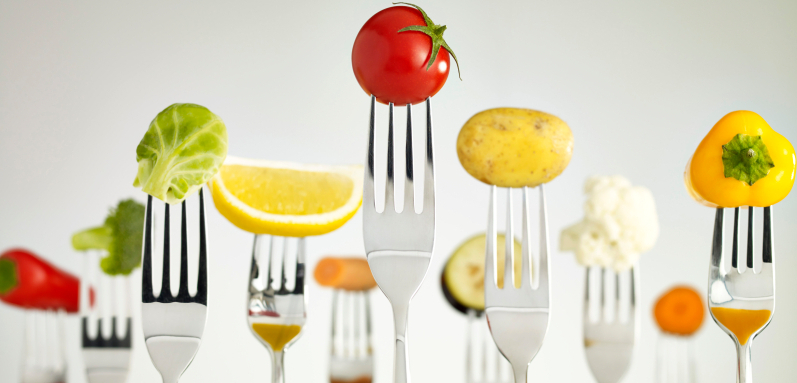SingaporeMotherhood | Baby & Toddler
May 2013
Breastfeeding & Your Diet: Your Questions Answered

During pregnancy, you begin to watch the foods you eat, ensuring that you consume wholesome foods that benefit your growing baby; your nutrition after birth and while breastfeeding remains important because it influences your own feelings of well-being.
Wendy Deshpande, 50, of Breastfeeding Solutions, is an International Board Certified Lactation Consultant who has counselled mothers for over 25 years. The British mother of two children aged 18 and 21 is also a UK-registered nurse and health visitor. Here, she shares with us how diet affects breastfeeding.
[banner][/banner]
Does what I eat determine the quality of my breastmilk?
Breastfeeding mothers do not need to eat a special diet in order to produce quality breastmilk. In fact, research shows that the quality of a mother’s diet has little influence on her milk. Your body uses your nutrient stores to produce breastmilk for your baby. Worldwide studies have shown that even malnourished mothers produce good breastmilk for their babies.
A poor diet is more likely to have a detrimental effect on you than on your breastfed baby.
How does what I eat affect my breastmilk?
The food you eat affects the taste of your breastmilk, gently introducing your baby to the
flavours of family foods that will comprise his own diet later on.
The kinds of fat present in your diet affect the kinds of fats present in your breastmilk.
Docosahexaenoic acid (DHA) is an omega-3 fatty acid that is necessary for optimal brain and
eye development in babies. Having more omega-3 fatty acids in your diet will contribute to high levels of DHA in your breastmilk, and you may choose to increase your dietary intake.
What sort of diet should I eat then?
The best diet for a breastfeeding mother is the same as for everyone else. It should consist of a variety of foods, in as close to their naturally-occurring state as possible; this means including lots of fresh fruit and vegetables, proteins, cereals and carbohydrates, and calcium-rich food. Avoid highly processed foods.
Your choice of foods within these categories will depend on your cultural heritage, economic situation, and food preferences.
Bananas, cereal or nut bars, whole-grain crackers, fruit yoghurts or smoothies make for healthy snacks. Cold-water or oily fish, some nuts, seeds and beans contain large amounts of omega-3 fatty acids.
How many calories should I consume daily? How much water/fluids should I drink?
A breastfeeding mother uses approximately 500 extra calories a day to produce milk for her
baby. Your actual calorie requirements depend on your individual needs.
Likewise, the water needs of an individual mother depend on her metabolism, environmental
conditions and activity level. According to the authors of Breastfeeding & Human
Lactation, the amount of fluid a mother drinks does not significantly affect the fluid content of her breastmilk. You do not need to ‘drink enough’ to make milk.
Eat to satisfy hunger and drink when thirsty.
Do I need supplements?
Breastfeeding mothers who eat a balanced diet do not need dietary supplements. However, if
you have a restricted diet, be mindful of possible nutrient deficiencies.
If you do not eat animal or dairy products, you can get adequate amounts of vitamin B12 or
calcium from food sources or supplements. If you have little exposure to sunlight, you can get sufficient vitamin D from vitamin D-rich foods or from supplements.
Does breastfeeding cause bone loss or osteoporosis later in life?
Although breastfeeding causes changes in bone density while you are breastfeeding, bone
density is restored, and actually increased after weaning, reducing the risk of osteoporosis later.
Can I drink caffeinated beverages or alcohol? Will these pass into my breastmilk?
Caffeine passes into milk in minute amounts. Your breast milk would contain 0.6 – 1.5 per cent of the caffeine you have consumed.
Recommendations about how much caffeine is safe to consume while breastfeeding vary from
one to five cups of coffee daily. Every baby responds differently, caffeine can make sensitive babies wakeful and jittery. Watch your baby’s response and reduce caffeine intake accordingly.
Alcohol passes into your breast milk but leaves your milk as it leaves your blood. Blood and breast milk alcohol levels peak about 30 – 60 minutes after drinking, although this timing depends on eating during that time period, the mother’s body weight, percentage of body fat and such.
While it is unlikely that an occasional alcoholic drink will harm a healthy, breastfeeding baby, it is sensible to limit your intake to one or two drinks once or twice weekly.
Does what I eat affect my breastfed baby’s behaviour?
There are no foods that should be routinely avoided while breastfeeding. Rarely, a breastfed baby will react to a particular food his mother eats.
If your baby has an obvious reaction or there is a strong family history of food allergy, it may be better to eliminate that food from your diet.
Eliminate one food at a time, allowing two to three weeks for your baby’s body to eliminate
remnants. Keep a journal tracking the foods you eat or avoid, amounts eaten and baby’s
symptoms.
Cow’s milk protein is the most common food to cause difficulties for nursing babies. If
removing all dairy products from your diet, do so under medical supervision and take calcium supplements for your own health. Soy products, eggs or wheat may also affect some babies.
Rigid ideas about what a breastfeeding mother should or should not eat are an obstacle to
breastfeeding, especially for mothers who feel that breastfeeding ‘restricts’ their lifestyle.
Nature has many fail-safes to protect your baby’s well-being, regardless of your diet. The
production of high quality milk for your baby is a tough process that is designed to work.
All content from this article, including images, cannot be reproduced without credits or written permission from SingaporeMotherhood.
Follow us on Facebook, Instagram, and Telegram for the latest article and promotion updates.






